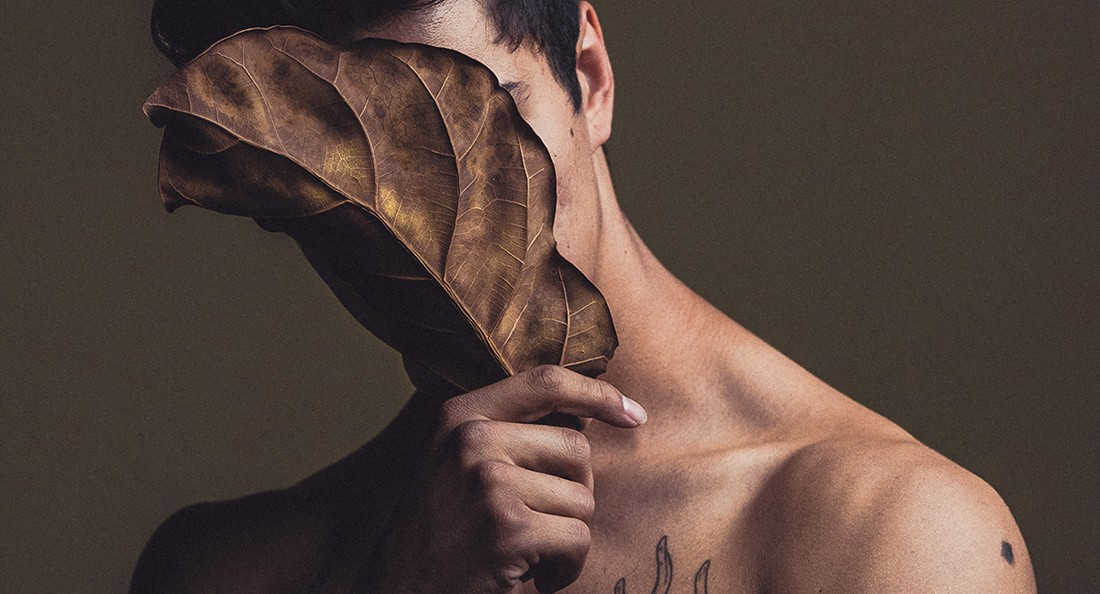Man up
What is the measure of a man? Who determined millennia ago what defined “real men” and separated that definition from other men, from boys or even from women? How do men and masculinity fit into the ever-growing and strengthening feminist movement that has become a hallmark of today’s modern world? Am I a good man? Can I be a better man?
Many (if not all) men have thought about these or similar questions at one point in their lives or another. The answers to these questions are as varied and numerous as the number of guys who ponder them.
“For me, a man is someone that is true to his word, who is full of integrity, who is selfless, who doesn’t show his strength physically, but in every other way. Emotionally, mentally, personally,” musician Alexander Grant says. “You can show all the physical strength you want, but that doesn’t mean you are a strong person.”
Junior high can be experienced by some as a proving ground for “manliness.” It comes after graduating from the boyhood of elementary school, but isn’t quite high school. It’s a time of moving from being a kid to being a teenager, and for some, puberty hits hard.
Grant felt fairly isolated from healthy male influences during junior high. He wasn’t particularly good at sports (and athletics are often linked to ideas about masculinity), and also experienced homophobic bullying.
“I didn’t really play video games, because my brother wouldn’t let me play with him. I couldn’t do the sports because they [other guys] wouldn’t let me play with them. And then, I was friends with all the girls, so I couldn’t talk about them the way they [other guys] wanted to talk about them, because I felt that’s awful,” Grant says.
“Looking back at it now I’m like, yeah, I’m glad I missed out on that, because obviously that was ridiculous. But, that’s what our culture has created in our kids and that’s not okay.”
While some areas of life – like sports, or junior high – can contain troublesome experiences for some men in the pressure to display or prove their masculinity, that doesn’t mean that these are negative things for all men.
“I play a ton of soccer. I’ve never really considered it as an element of my masculinity, but definitely my confidence is very much intertwined with my soccer aptitude,” Todd Chernomas says.
Photographer Ally Gonzalo recently arrived in Canada from the Philippines. Gonzalo feels he was much more able to discover his true identity since moving, and a year ago, at the age of 22, he was comfortable enough to openly identify himself as gay.
“Being a man to me, before, was being into what most men are into. So, sports and being into girls (defined manliness) of course, because that is what I was exposed to when I was younger. Then as I grew older and as I went to university and as I was exposed to more and more people who are part of the LGBTQ+ community, I slowly realized that defining what it means to be a man is not just that template and it encouraged me,” Gonzalo says.
“Thinking that there is only one definition of what a man is was very disheartening, because I was never into those things. I never fit the description.”
Repressing one’s true self for fear of being called out as less than a man, or less than a man should be, can be a common link for many men during the development of their masculine identities.
“I’ve missed out on a lot I think. Looking back, I enjoyed playing games that were associated with girls playing … and I wanted to participate. But I was told ‘that’s only for girls and if you do that you must be gay.’ And I feel like that has damaged me in a way. It ingrained in my mind that being gay must make me a bad person,” Gonzalo says.
“Coming out has been a very liberating experience and I’ve grown a lot more since then, compared to 22 years of repressing who I really am.”
Every male experience of life and of masculinity is different. This photo essay explores the experiences of some cisgender males, although many trans and non-binary people, as well as other cisgender men have likely experienced masculinity differently. This photo essay is meant to further the discussion that it is okay (and normal) for cis men to step outside of the perceived norms of masculinity and embrace their emotional, tender, creative and other non-stereotypical masculine qualities.
Photo by Ally Gonzalo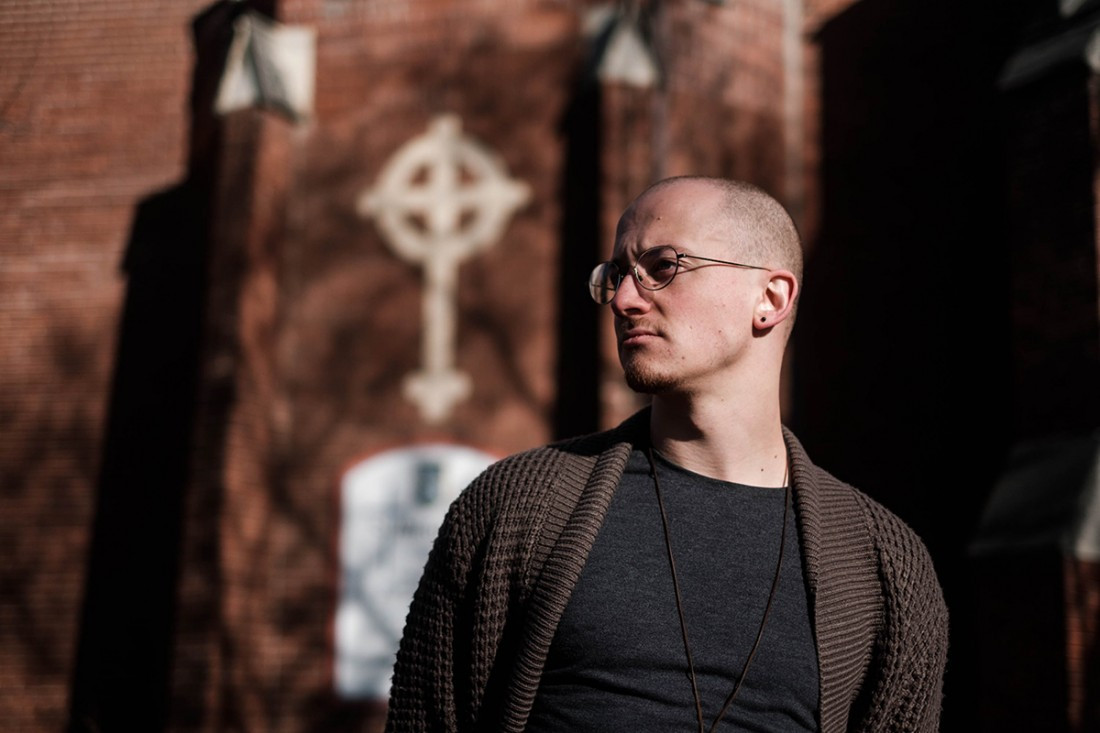
"I think the biggest thing I lost out on was developing a love for sport, or a love for myself as a man, or my masculine identity. So I kind of had to figure it out myself, which is totally fine. Where I’m at now I’m okay with my masculinity. I’m okay with the fact my masculinity is 110 per cent different than most, and that’s okay. It’s okay to not identify as normal. Who wants to be normal? Normal is shitty," Grant says. “We’re teaching boys to hold in stress. No wonder men get into fights more than women do. Because we are teaching them to hold in all this emotion. … It’s not 'women are emotional' or 'men are aggressive.' It’s humans are emotional, humans are aggressive. We all have these emotions in us. Why should our gender, or whatever we identify with, affect the way our emotions are portrayed?” Grant says. “Why do we tell boys that they can’t cry? Why do we say that, guys? It’s okay for girls to cry, but it’s not fine for guys to show emotion, other than punching someone. That’s ridiculous!"
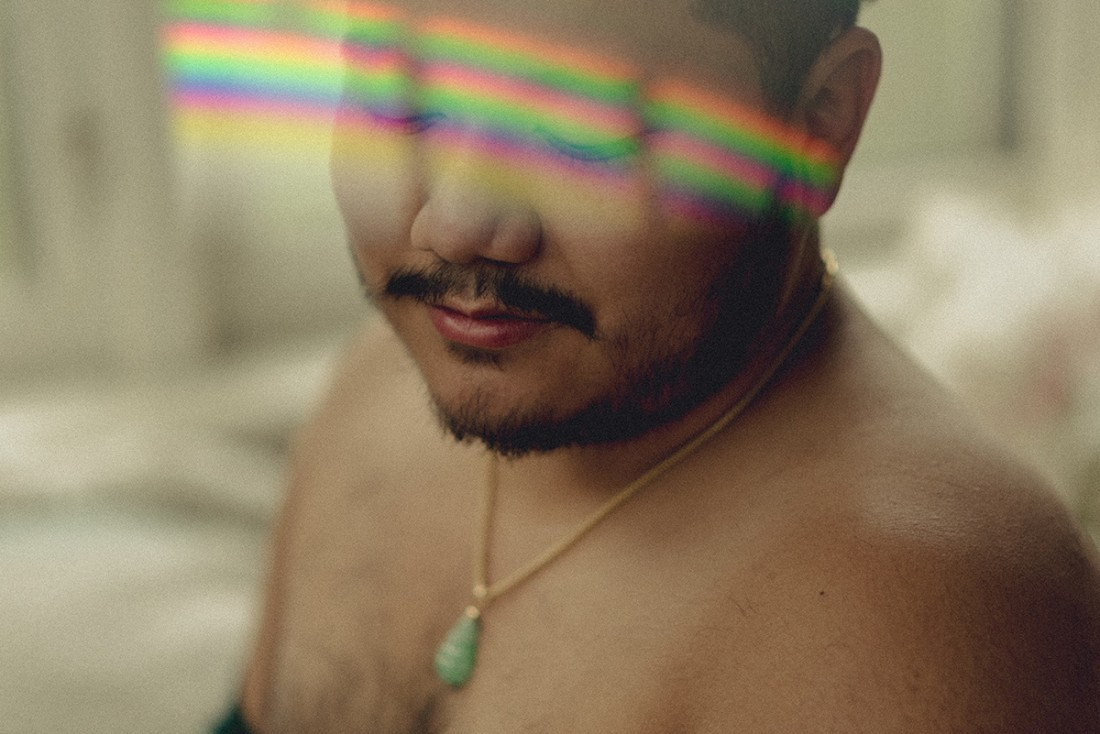
“In the photography world there is this sub-genre called boudoir, where females are meant to be empowered. They are often (dressed) in lingerie or intimate wear, but they are being made to feel good about themselves and not to be objectified as they often are when they are in that kind of clothing. I’ve (done) parodies of boudoir called ‘dudeoir,’ but making fun of it instead of actually empowering people. So I thought to myself, why don’t I actually try doing this and actually take it seriously. Like, actually help empower men as well," Ally Gonzalo says of his photo series.
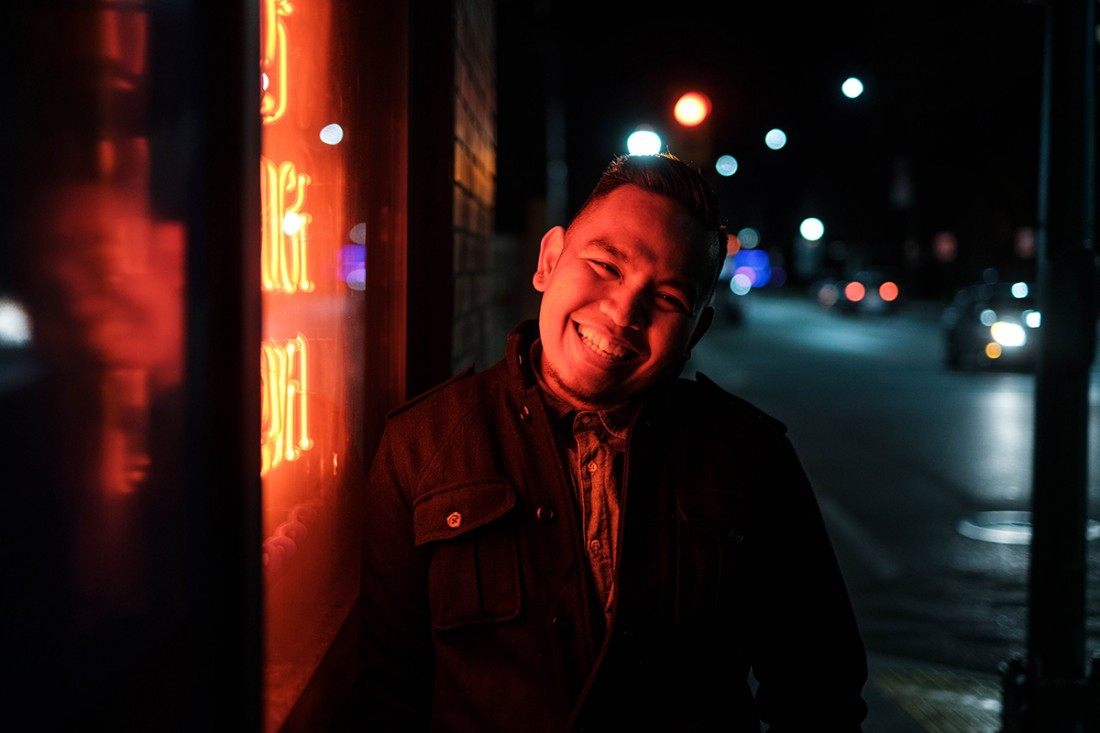
“Being exposed to positive reactions when people find out I’m gay has helped me to be more not withholding of myself. So (I am) open to telling people I love Beyoncé, I just like female artists and stuff like that. Unapologetically loving pop music – little stuff like that is how I practice being a man. But that’s not really something I’ve given much thought to, because I don’t actively think ‘oh this is what I’m going to do today to be a man.’ For so long, I had done things for other people to think that I’m a man of because I thought this was acceptable to other people," Gonzalo says
Photo by Ally Gonzalo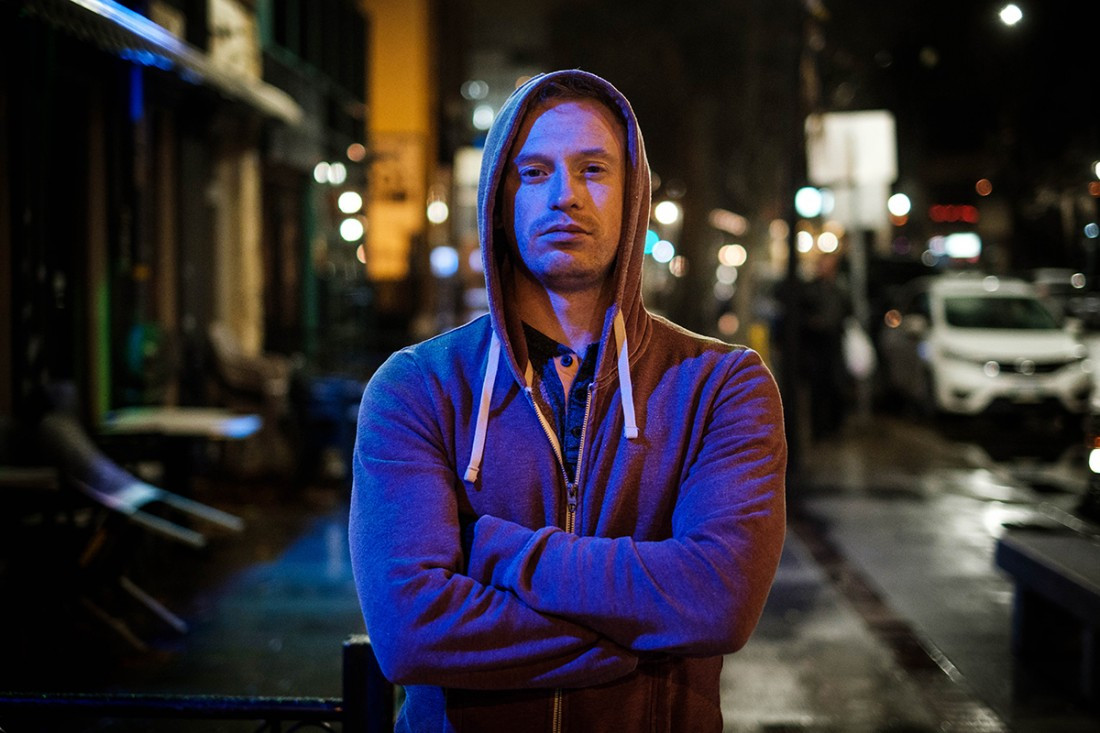
Todd Chernomas had no friends in school through junior high, and one friend outside of school. “High school was better, but it kind of took those three years and then University 1, where that one friend who was outside of school brought me into his friendship group. That allowed me to have both that fresh start and apply those lessons that I learned from not having a lot of social contact with a variety of people," Chernomas says.
“By the time my first year of environmental architecture started, that was my coming out party. That was like hitting puberty in a lot of ways. I mean … puberty sucked! I would argue more than most, but I didn’t get to start appreciating puberty until second year university … now I feel like I really appreciate more the close friendships that I have, while still having a constant craving for more, for unique, for different, for new, for all that kind of stuff.”
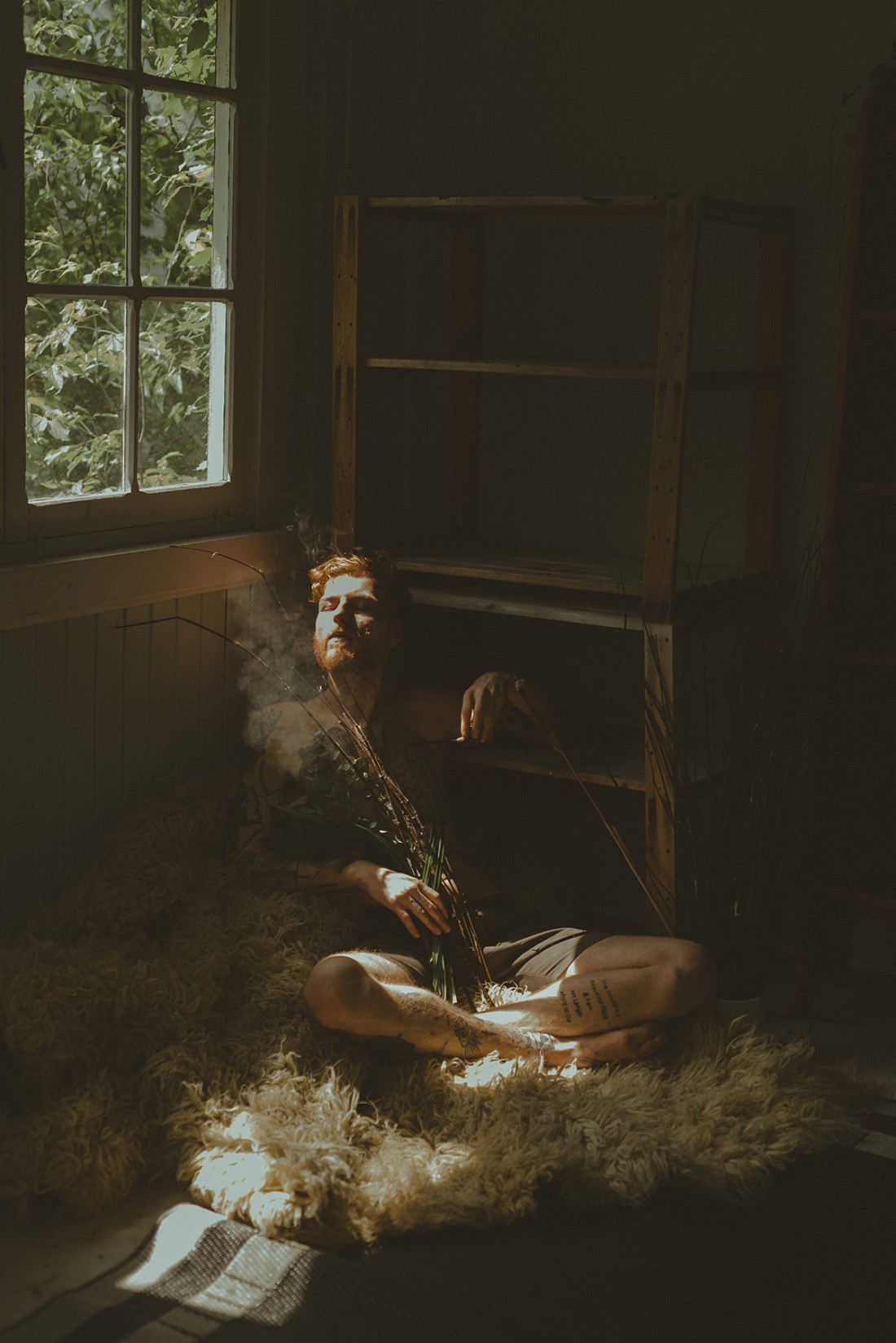
Gonzalo explains the process of building his "dudeoir" portfolio. “Being on (Grindr), I was afraid, because I didn’t want to be judged. Because people might think ‘oh, you’re here, you just want sex,’ and stuff like that. That got me thinking, why am I thinking this way – that someone who is seen as wanting sex would be a bad person? It made me realize that shaming people for being sexually active has been heavily ingrained in the way I think. I’m lucky to recognize that is something I’ve been conditioned to think, and this is not something I should pursue, with that kind of line of thinking,” Gonzalo says.
“It has helped me grow in a way, with the way I perceive this app, and the way I see masculinity too. It took me a lot of time to ponder and process everything."
Published in Volume 72, Number 8 of The Uniter (November 2, 2017)

